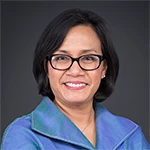The most important word in "public policy" is "public" — the people affected by the choices of policymakers.
But who are these people? And what do they care most about? Policies evolve as the concerns of generations change over time. Regardless of whether you are generation X, Y, or Z, people want the same things: prosperity and dignity, equality of opportunity, justice and security.
Today, all of us have access to instant information from a smartphone. But the irony is that more access to more information has not made people more open-minded. Instead, it has become a lot easier to confirm one’s own assumptions and stereotypes by filtering out the other side. It takes more effort to reach across the lines of division and understand the people one doesn’t agree with.
This plays into the hands of populists who shout louder, who see all problems as black and white, who exploit fears and offer magic solutions to complex issues. This is making the job of policymaking so much more challenging.
It means that your "public" is more impatient and people get angry quickly, because expectations are high and people want delivery as fast as an instant message.
So, what do you need to know to become a good policymaker?
1) First, understand that technical competence is non-negotiable for you to make informed decisions. Together with good judgment, it helps you understand the tradeoffs, merits, and demerits of your decisions. But, most importantly, it allows you to identify winners and losers and how to address their issues.
2) Be prepared to make tradeoffs. Understand that even if you are convinced of the quality of your policy, not everyone will benefit immediately. This is true for every country, whether rich, middle-income or low-income. It affects people’s lives in very real ways. Just because your policy makes sense and the numbers add up, it doesn’t mean it works. In fact, you will see that rarely in life can you choose between the best and the second-best option. Sometimes even the third-best option is out of reach.
3) Sometimes, the least bad option may be all you have. When I was a finance minister, Indonesia, like many other countries, was affected by the global financial crisis. Commodity prices dropped, and as an oil producer and open economy, we were close to economic collapse. Corrupt officials and powerful interest groups benefited from the status quo and tried to undermine every effort to reform our country and rebuild confidence. Not every problem is of this proportion, but reality is often very different from what you find in textbooks. It is full of people with emotions, expectations, attitudes and competing interests — not all in support of solid reform.
So dealing with tradeoffs may be the most difficult part of your career — perhaps of your life. There may be people who lose out, even with good reforms, at least temporarily, because you didn’t have the luxury of a perfect outcome. How will you explain this to them? How will you compensate them? And will they listen and understand in a complex world where endless information is competing for their attention?
4) Be inclusive and transparent. To answer these questions, you need the best technical expertise, not just within yourself, but in your team. People need to sit at the table. They deserve respect and dignity and their voices must be heard. Remember without them you won’t achieve legitimate results. In the field of public policy, even more so in a position of leadership, your success is defined solely by how the people who are affected by your work are doing. Their success is your success.
5) Show leadership. You need to show empathy and truly understand people’s hearts and minds. You need to be able to convince them that reform is needed and success is possible. You need to have courage of conviction, be dedicated, and driven by a strong sense of integrity.
Leadership also means the ability to differentiate between facts and evidence on the one side, and bias and subjectivity on the other. It means managing every process inclusively and making choices wisely and responsibly, no matter how hard they seem. While the cost of change is often immediate, success can be delayed and people may not remember your contribution by the time it arrives.
6) Finally, always choose to do what is in the best interest of the public. It ultimately will make you a better human being too. Sometimes, not everyone will appreciate your decision. Some may misunderstand your actions, nd others even misrepresent them.
But if you act with full integrity and without compromising on fairness, and if you act with honesty, humility, and respect for the dignity of people, you always come out a winner.
No matter whether you hold public office or work for a private company, an NGO, or civil society organization — and no matter whether you are an entry-level, a mid-level professional, or an executive — nothing will beat integrity and the value of your dignity.
This blog post is based on remarks by Sri Mulyani Indrawati during the commencement at the University of Virginia’s Batten School of Public Policy and Leadership on May 21, 2016.



Join the Conversation